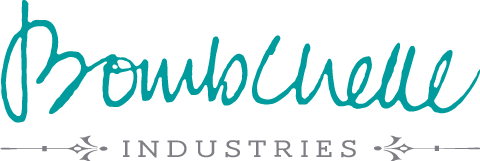

Here’s an interesting confession for someone who now makes (at least part of) her living doing content marketing: I used to think I sucked at marketing. Like, really bad.
Why did I think I was terrible at marketing?
I’ve thought about it since then and I think the main thing was that I equated marketing with sales. Both sales as in, getting on the phone and asking people for money (merciful Zeus, don’t make me do that), and sales as in, “if I was any good at marketing at all, obviously I’d be making like, six figures a year or more.” Neither of these are necessarily true for reasons I’ll get to in a moment, but first, let’s talk about my “come to Jesus” moment…
The outside perspective:
When I started interviewing for jobs last year, I got a surprise. I started out by applying to project-manager-esque jobs. Some account management, too, and I even applied for some office manager type jobs. And one of the places I had a phone interview for at an awesome company here in Austin, the HR manager pretty much changed my life. She said, “I’ve looked at your resume and you’re obviously really smart and talented, but I had one question: Why aren’t you applying for marketing jobs? That’s what came to mind for me when I looked at your accomplishments and skill set.”
Cue the record scratch.
Say what?! Someone who literally hires people for a living thinks I’m good at marketing? Well, huh. I have to think about this more.
In the next few weeks, I totally retooled my resume to focus on that part of my skill set, and soon, I had a job. Doing something I had previously thought I sucked at. And getting not only compliments from my director and boss, but getting results for clients. (Also, around six months after I originally applied to aforementioned company, I saw that they had a “marketing coordinator” position available and sent in my info for that…to be told my info would be passed along but that the position was probably too junior for me.)
As far as the idea of “sales” goes, I still hate getting on the phone and trying to do the hard sell. Honestly, I’d pretty much rather stab myself in the eye than talk to someone I don’t know on the phone. Instead of trying to force something like that, I generally go with the radiate and state the facts method, and it’s working pretty well for me.
As far as income goes, I think the main reason that I wasn’t making steady income before was a marketing issue, but not that I inherently sucked at it. I wasn’t applying myself to my own marketing and I wasn’t being consistent with marketing myself and my services. I think the main issue there is that I was so incredibly burned out it’s a wonder that I got through last year at all.
Getting better at marketing yourself: two suggestions
Believe in what you’re doing and avoid burnout
These might seem like two separate suggestions, but to me, they’re one and the same. It’s virtually impossible to believe in what you’re doing if you’re so burned out you can’t even think straight. Likewise, it’s impossible to market yourself if you don’t 100% believe in what you’re doing and the results you can bring to the table, and you can’t do anything well when you’re burned out.
I don’t have a pat answer for believing in what you’re doing. I know you do think you’re bringing value to the table, because if you’re here and reading this, you’re probably not the type of person that would try to sell someone snake oil. So remind yourself of that – save testimonials from clients, save nice things people say to you on Twitter, keep them someplace you can return to them, and remind yourself as often as possible that yes, you do rock at what you do.
Further resources for avoiding burnout: When you’re on the verge of crispy: a guide for the almost-burned out and The Kick Burnout Kit
Treat yourself as you would a client
Even if you’re not in the marketing field, I think this still applies. Why? Because you wouldn’t let a client’s projects sit on the back burner because you just “didn’t have time” for them, right? So why would you let your own business development sit on the back burner for the same reason? Give yourself and your business the same level of care and consideration you give your clients. Make sure you’re carving out at least two, and probably more like five (as a minimum), hours a week to think about your own marketing and how you can get better at it.
You might not like marketing but, fortunately or not, it’s a factor of doing business. And make sure to read the other posts in the July Word Carnival, Marketing without Marketing, which is pretty much this whole topic. Nobody likes to be “sold”. But professionals of all ilk have value to add to a product, service, or business. So how do you convey it without being a salesperson? Read the other entries here.
